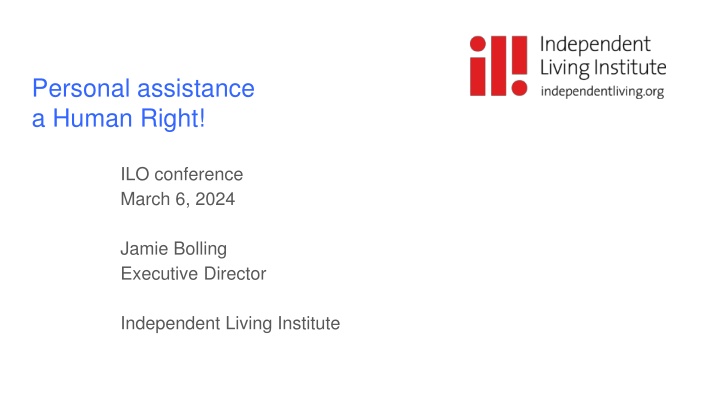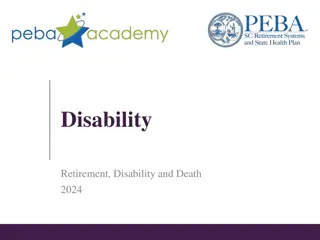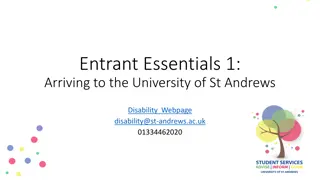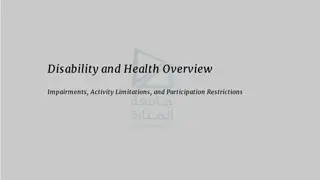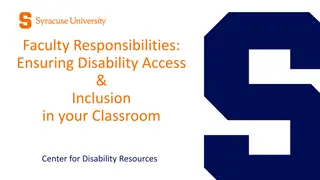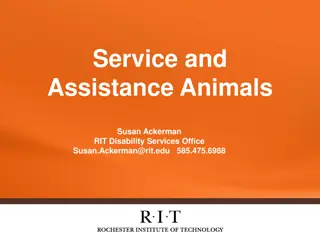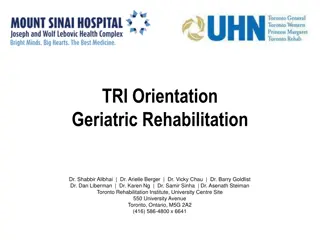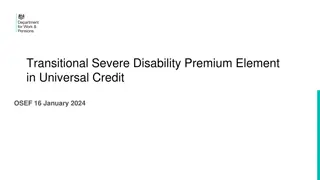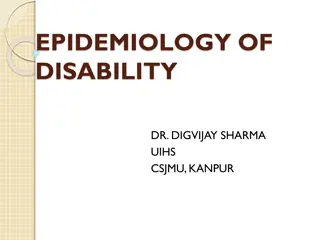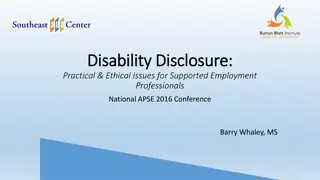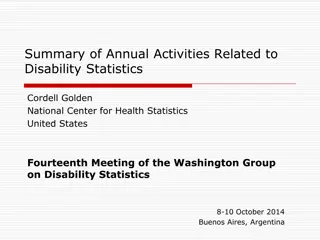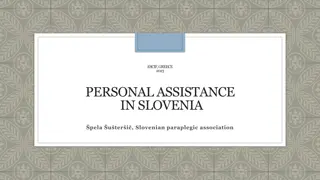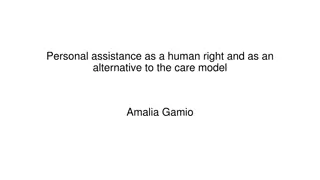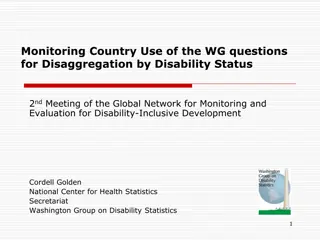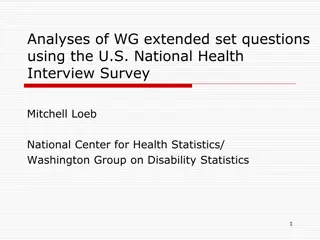Personal Assistance as a Human Right in Disability Support Systems
Exploration of how personal assistance has become a fundamental human right in disability support systems, empowering individuals with disabilities to lead independent lives. The discussion covers assessments, eligibility criteria, and the provision of services to cater to both basic and personalized needs.
Download Presentation

Please find below an Image/Link to download the presentation.
The content on the website is provided AS IS for your information and personal use only. It may not be sold, licensed, or shared on other websites without obtaining consent from the author.If you encounter any issues during the download, it is possible that the publisher has removed the file from their server.
You are allowed to download the files provided on this website for personal or commercial use, subject to the condition that they are used lawfully. All files are the property of their respective owners.
The content on the website is provided AS IS for your information and personal use only. It may not be sold, licensed, or shared on other websites without obtaining consent from the author.
E N D
Presentation Transcript
Personal assistance a Human Right! ILO conference March 6, 2024 Jamie Bolling Executive Director Independent Living Institute
Adolf Ratzka We are tired of non-disabled people deciding over our lives. We want the same freedom and the same responsibilities as others.
LSS = Right 1994 - The Swedish Disability Reform Three categories Choice for administration
LSS 10 Measures 1. Advice and support 2. PA 3. Escort service 4. Personal contact 5. Relief service in home 6. Short stay away from home 7. Supervision children 8. Housing arrangements children young people 9. Housing arrangements adults 10.Daily activity
LSS - Assistance for Good Life Assessment includes all areas of life In and outside of home Education or work Travel Social life Recreation
Personal assistance An individual right since 1994 Denial of this right can be appealed through the Administrative court.
Who has the right? Age limit: 0 - 65 years Intellectual disability Physical disability Autism and brain
Needs assessment Open-ended interviews based on an assessment tool As a result your needs are defined and calculated into an average amount of hours you will be granted personal assistance.
Division of needs Basic needs Personal needs self-care personal hygiene meals getting dressed/undressed communication with others Support which requires extensive knowledge about the person Not basic needs Needs not covered through other support measures
Personal assistance allowance Direct payments for personal assistance from tax-funded social insurance system A flat rate per hour, reviewed annually
State funding/responsibility > Your basic needs 20 h/week
Municipal funding/responsibility > Your basic needs 20 h/week
Local Municipality Organise your personal assistance Private company users cooperative organise your own service
Cooperative STIL Employer/Employee tasks Development of Work leaders Empowerment Training of personal assistance Assistance with Quality Development of Persons with Intellectual Impairment as work leaders
Development of User as Work Leaders Empowerment - leadership of staff What, how and when Need of assistance Training: Legislation Recruitment Schema Planning Work relationship
Thank you! Jamie.bolling@independentliving.org www.independentliving.org
Further Reading Brennan C, Traustad ttir R, Anderberg P, Rice J. Are Cutbacks to Personal Assistance Violating Sweden s Obligations under the UN Convention on the Rights of Persons with Disabilities? Laws. 2016; 5(2):23. https://doi.org/10.3390/laws5020023 Griesser S, Personal Assistance for Disabled People in Germany and Sweden in the Context of the Independent Living Philosophy and the UN Convention on the Rights of People with Disabilities. Independent Living Institute library, 2018. https://www.independentliving.org/docs10/Personal-Assistance-in- Germany-Sweden-selina.html
